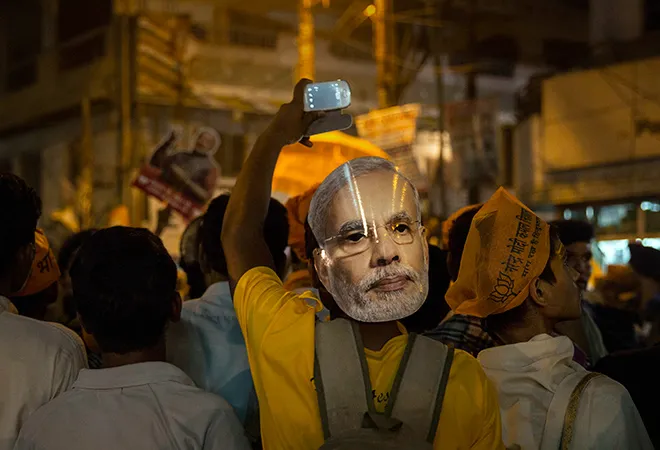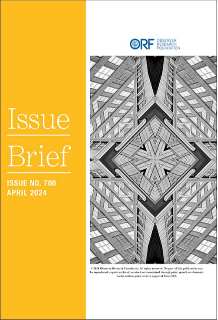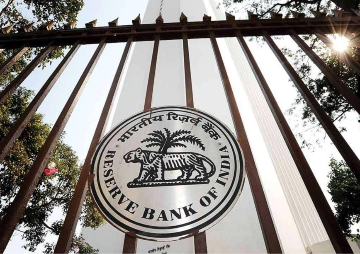
It is crystal clear that outcome of the upcoming assembly elections in the state of Haryana and Maharashtra on October 21 is going end in the massive victory of the BJP in the former, and BJP-Shiv Sena alliance in the latter.
The opposition today stands clueless, not knowing what to do, where to go, when to strike and why to exist with its popular acceptability nose-diving to a historic low. It is in a definite state of disarray with its leaders either deserting respective parties or staging rebellion for not getting their pound of flesh.
Both the main opposition parties have recently suffered from desertions with their leaders walking over either to the BJP or the Shiv Sena. More than two-dozen prominent leaders from the two parties have opted for pelf and power showing scant regard to either ideology or loyalty to their respective organisations.
Taking a close look at developments in Maharashtra, where the Congress and the Nationalist Congress Party (NCP) are the main opposition parties, with Vanchit Bahujan Aghadi (VBA), All India Majlis-e-Ittehad -ul-Musilmeen (AIMIM) along with host of smaller parties are contesting against ruling BJP-Shiv Sena alliance.
Breaking of the alliance between VBA and the AIMIM is surprising since it broke off on the issue of number of seats that each party wanted to contest.
While both the NCP and the Congress were keen to strike an electoral alliance with the Prakash Ambedkar-led VBA, to avoid division of anti-saffron votes, an understanding could not be reached because of the latter’s demand for more seats — a number that NCP and Congress could have given only conceded if the two had decided to close their shops resulting in eventual self-destruction.
Incidentally, Prakash is the grandson of iconic Dalit leader and maker of the country’s constitution Dr Bhim Rao Ambedkar. The VBA had contested 2019 Lok Sabha polls in an electoral alliance with AIMIM with the latter winning Aurangabad Lok Sabha seat and the former drawing a blank though it had succeeded in damaging the winning chances of at least 10 Congress-NCP candidates, helping the BJP-Shiv Sena in the process.
Breaking of the alliance between VBA and the AIMIM is surprising since it broke off on the issue of number of seats that each party wanted to contest. The VBA was not willing to concede more than 10 seats to AIMIM while the latter was keen to contest between 50 to 60 seats. The VBA has fielded candidates on more than 200 seats while AIMIM focusing on 60 odd seats that has around 10 or more percent of Muslim voters. Falling apart of the VBA-AIMIM is a classic case of over-ambitious leaders who overestimate their outreach and popular appeal.
The situation, in Haryana where the two opposition parties namely the Congress and the Indian National Lok Dal (INLD) are faction-ridden and their respective leaders fighting among themselves rather taking head on the BJP that had formed the government in 2014 after winning 47 seats in a 90-member assembly, is no different. The INLD and the Congress had won 19 and 15 seats respectively.
The BJP won all the 10 Lok Sabha seats in 2019 by huge margins with the saffron party continuously increasing its vote base from 17% in 2009 assembly elections to 34% in 2014 and over 58% in the recent parliamentary elections.
The INLD has split into two owing to running feud in the former Deputy Prime Minister Chaudhary Devi Lal family while the Congress is facing a terrible factional fight with two times Chief Minister Bhupinder Singh Hooda hell bent to turn the state unit of the 134 year old party into his personal fiefdom, forcing other leaders to either quit the Congress or lie low and strike back at an opportune time.
The BJP won all the 10 Lok Sabha seats in 2019 by huge margins with the saffron party continuously increasing its vote base from 17% in 2009 assembly elections to 34% in 2014 and over 58% in the recent parliamentary elections.
For decades, politics is Haryana has been a game of political opportunism with the state being famous for ‘Aya Rams and Gaya Rams’. In 1979, Bhajan Lal had walked out with the entire state unit of the Janata Party to join the Congress to become the chief minister. In the last five years, 25% of the legislators who were elected on non-BJP tickets in 2014 assembly elections have joined the BJP creating a problem of plenty for the saffron outfit.
Need for the opposition unity was never so urgent because the country is facing its worst crisis since 1947.
After a threat from Hooda to float his own party, a weakened Congress high command had agreed to remove Pradesh Congress Committee chief, one-time Lok Sabha from Sirsa MP Ashok Tanwar barely a month before the assembly elections. After his removal, Tanwar first flexed his muscles and then quit the party when the party national leadership overlooked his demands. Both Hooda and Tanwar acted in their limited self-interest.
The story is no different in other states as the BJP despite being in power for over five years is not only facing any anti-incumbency but are on the verge of scoring much larger victories than in 2014. In majority of the states, the opposition is a directionless lot that has not been able to grasp the changes that RSS-BJP has brought into the political system of the country through Prime Minister Narendra Modi and his comrade-in-arms, Union Home Minister Amit Shah.
Need for the opposition unity was never so urgent because the country is facing its worst crisis since 1947. The way almost all the institutions and constitutional positions — autonomous or otherwise — are being destroyed, undermined or compromised is unprecedented.
The Indian parliamentary democracy is on a deathbed, slowly but surely losing one vital organ after the other. The opposition parties are deeply divided and are essentially engaged in acts of hara-kiri.
The views expressed above belong to the author(s). ORF research and analyses now available on Telegram! Click here to access our curated content — blogs, longforms and interviews.




 PREV
PREV


